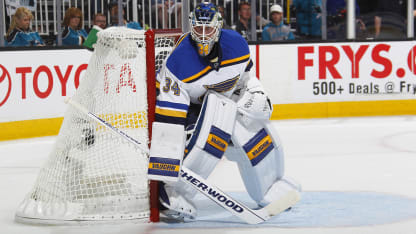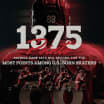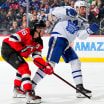VANCOUVER -- For Jake Allen, becoming the No. 1 goaltender for the St. Louis Blues during the summer may have been a step up in title, but it didn't mean trying to take another step on the ice.
Whether it was on the ice or on the golf course as an elite junior growing up in Fredericton, New Brunswick, Allen knows trying harder in either sport is rarely a recipe for success. So when Brian Elliott was traded to the Calgary Flames for a second-round pick in the 2016 NHL Draft and a conditional third-round pick in 2018 on June 24, Allen didn't suddenly alter his summer routine or change his in-season practice habits.
Blues goalie Jake Allen lets game come to him
Finds secret to success is trying not to do too much

© Rocky W. Widner/NHL/Getty Images

















